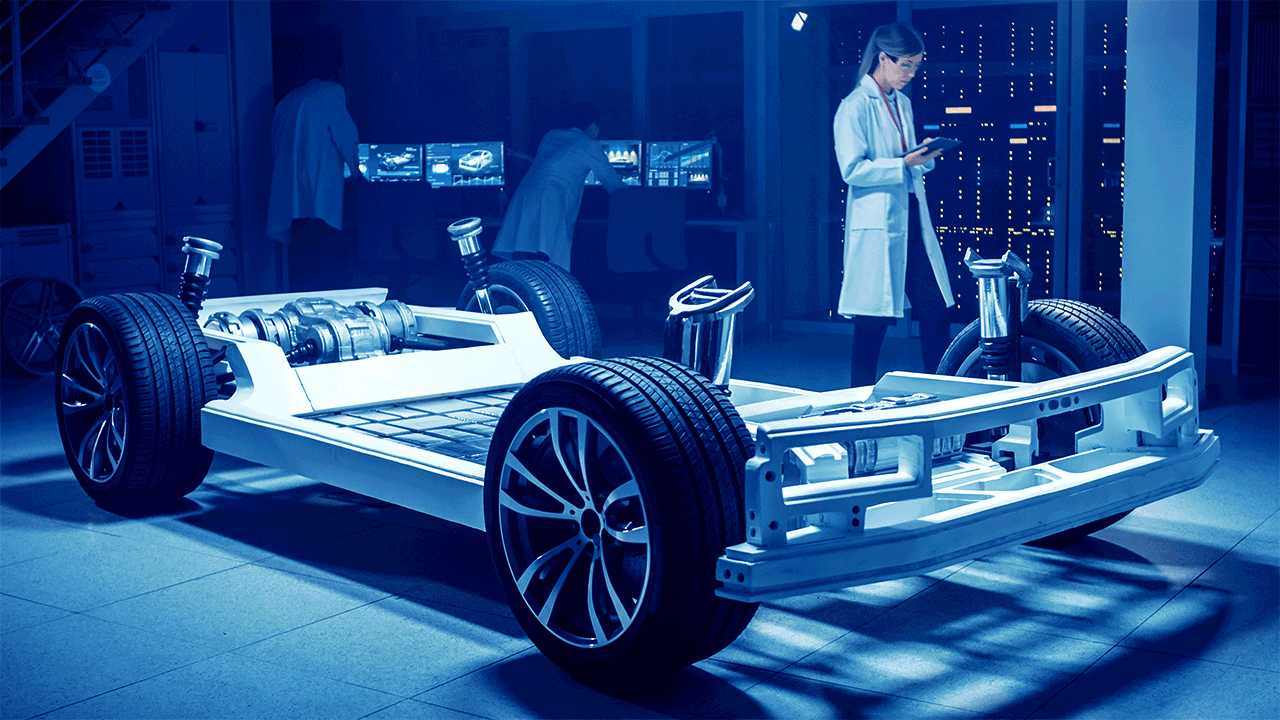Electric Vehicle (EV) Testing
Electric Vehicle (EV) testing is a crucial process that ensures the safety, reliability, and performance of electric cars. With the rise in popularity of EVs, comprehensive testing protocols have become essential to meet regulatory standards and consumer expectations. This testing covers a wide range of areas, including battery performance, durability, safety, and overall vehicle performance. Here’s a detailed look at the different aspects of EV testing:
1. Battery Testing
Battery Life and Performance:
The battery is the heart of an EV. Testing its life and performance involves subjecting it to various charge and discharge cycles to simulate real-world usage. This helps in understanding the battery’s capacity retention and degradation over time.
Thermal Management:
Batteries generate heat during operation. Thermal management testing ensures that the battery operates within safe temperature ranges under different conditions, preventing overheating and enhancing longevity.
Safety Testing:
This involves rigorous testing to ensure that the battery does not catch fire or explode under extreme conditions, such as overcharging, short-circuiting, or mechanical damage.
2. Charging System Testing
Compatibility:
Testing ensures that the EV’s charging system is compatible with various charging stations and networks, especially since standards can vary across regions.
Efficiency:
Efficiency testing measures how effectively the EV converts electricity from the grid into usable energy in the battery, minimizing energy losses.
Durability:
The durability of charging components, such as connectors and cables, is tested to ensure they can withstand repeated use and harsh environmental conditions.
3. Performance Testing
Range Testing:
This measures how far an EV can travel on a single charge under different driving conditions. It helps in providing accurate range estimates to consumers.
Acceleration and Speed:
Performance testing evaluates how quickly an EV can accelerate from a standstill and its top speed, which are critical factors for consumer satisfaction and safety.
Handling and Stability:
This involves testing the vehicle’s handling characteristics, such as steering response and stability, especially in emergency maneuvers.
4. Environmental Testing
Temperature Extremes:
EVs are tested in extreme hot and cold conditions to ensure they can operate reliably in various climates. This includes testing the performance of the battery, motor, and other components.
Water and Dust Ingress:
EVs are subjected to conditions simulating heavy rain, deep water, and dust to ensure that the vehicle and its components are adequately protected against environmental hazards.

5. Safety Testing
Crash Testing:
EVs undergo extensive crash testing to evaluate their structural integrity and the effectiveness of safety systems, such as airbags and crumple zones, in protecting occupants during collisions.
Electromagnetic Compatibility (EMC):
EMC testing ensures that the vehicle’s electronic systems do not interfere with other electronic devices and are not susceptible to external electromagnetic interference.
Functional Safety:
This involves testing the vehicle’s control systems, such as braking and steering, to ensure they function correctly even in the event of a failure.
6. Software and Cybersecurity Testing
Software Validation:
The software that controls various EV functions is rigorously tested to ensure it operates correctly and efficiently under all conditions.
Cybersecurity:
With increasing connectivity in modern EVs, cybersecurity testing is vital to protect against hacking and unauthorized access to the vehicle’s systems.
Conclusion
Crash Testing:
Comprehensive EV testing is essential to ensure that electric vehicles meet high standards of safety, reliability, and performance. By rigorously testing every aspect of an EV, manufacturers can provide consumers with vehicles that are not only environmentally friendly but also dependable and enjoyable to drive. In British Columbia, Canada, where there is a growing interest in electric mobility, robust EV testing protocols are crucial for fostering consumer confidence and promoting the widespread adoption of electric vehicles.


